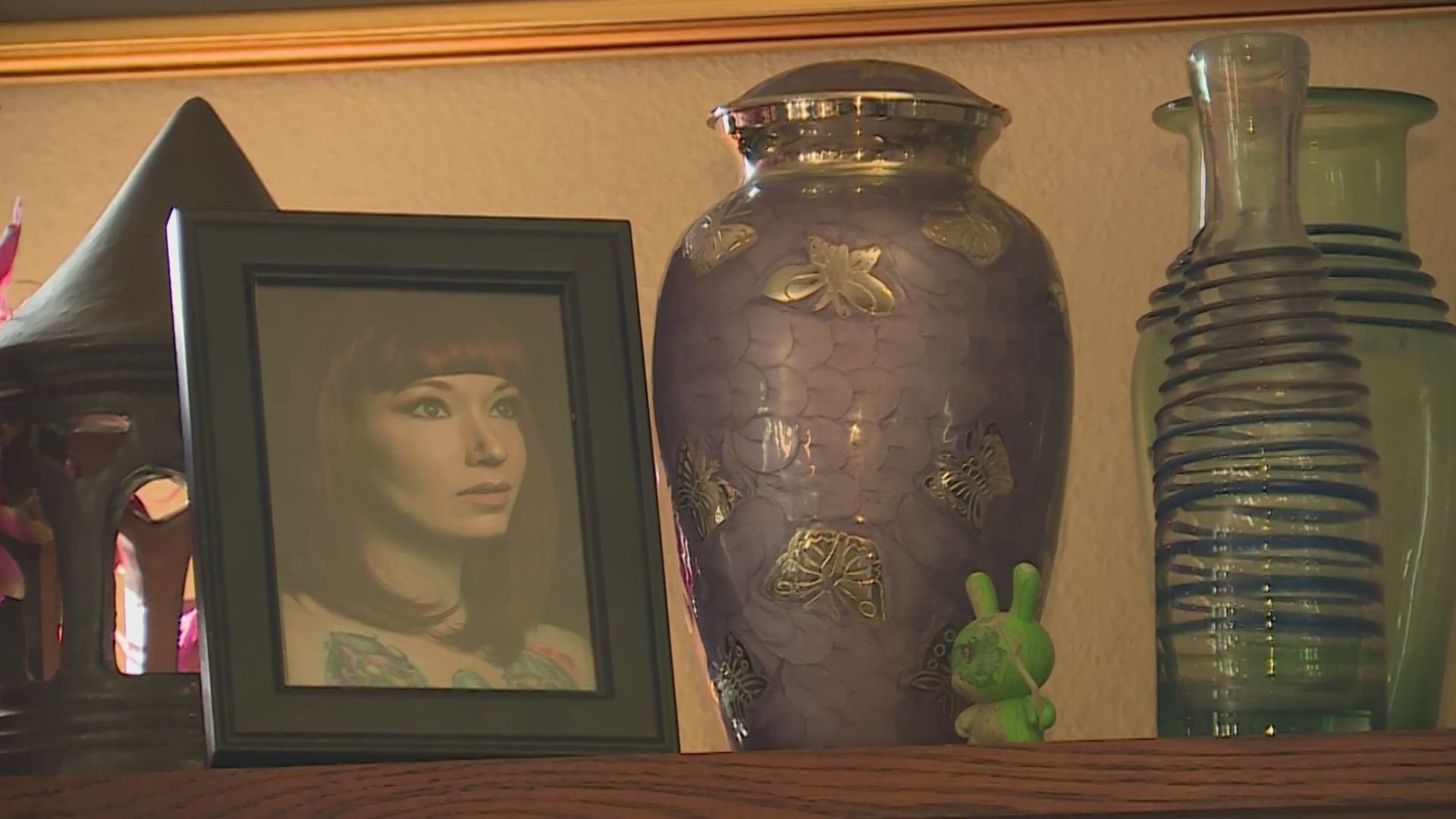DENVER — Sheila Canfield-Jones still finds it hard to talk about what’s happened to her over the past six months.
It all started with a phone call from an FBI agent in October.
When her daughter Marella Genevieve Canfield-Jones died in 2019 at the age of 38, her mother turned to a funeral home with a nice-looking website to handle the services. The Return to Nature Funeral Home in Penrose promised to help plant a tree in her name.
On Oct. 23, the FBI called to share devastating news.
“We were told at that time that the ashes we had were cement, that they were not hers, and her body had been identified as one of the bodies in the Penrose building, decaying for the last four years,” she said.
“She deserved better. Everyone deserves dignity in death. And she doesn't have that opportunity.”
Canfield-Jones stood beside a bipartisan group of lawmakers Monday to announce a proposed bill to license funeral practitioners in Colorado for the first time since 1983.
“We are here today to declare that enough is enough in Colorado,” said state Sen. Dylan Roberts, D-Frisco. “We simply cannot remain to be the only state in the nation that does not license funeral professionals.”
The bill, co-sponsored by state Rep. Matt Soper, R-Delta, would require all new funeral directors in the state to be licensed by the state by 2026.
The license for funeral directors, cremationists, embalmers and mortuary science practitioners would require a professional to graduate with a degree in their field from an accredited college, pass a national board examination, have served in an apprenticeship in the field at some point in their career and pass a criminal background check. That licensing process would start in 2026.
The bill would allow current practitioners in Colorado to earn a provisional license – removing the degree requirement if they’ve worked in the field for 6,500 hours. The provisional license would be effective upon passage when the governor signs the bill, Roberts said.
“We're the only state in America that doesn't require licensure,” Soper said. “And that's also why almost all the horrific stories that we've heard around the nation come out of Colorado.”
Danielle McCarthy found out her deceased husband David’s body parts were sold by directors of the Sunset Mesa Funeral Home in Montrose. She sat in the audience as lawmakers introduced the bill.
“This is a long time coming. This should have been first thing after Sunset Mesa,” she said.
But both McCarthy and Canfield-Jones said there’s more work to be done beyond this.
“I'd like to see some continuing education,” McCarthy said. “I think it needs to have some ethics and morals. I'm in the financial industry. I still have to go through anti-money-laundering every single year. I still have to go through fraud. I still have to go through all of these that are constant in our industry.”
Canfield-Jones said she wants to see more transparency from the agencies enforcing the regulations.
The director of the Department of Regulatory Agencies said the department will add a fiscal note to the bill during the legislative process to show what resources they’ll need to keep the enforcement up.
The sponsors of the bill said some in the industry have concerns that the licensure may increase the cost of doing business.
Family members said a little extra cost is worth it if the legislation stops someone else from feeling the same pain.
“I understand it's gonna be tedious filling out paperwork and going online, blah, blah, blah, blah, blah,” McCarthy said. “It's five minutes of your time, versus a lifetime of trauma for 1,200 families in the state so far.”
Have you had a bad experience with a funeral provider? Send a tip to 9NEWS Consumer Investigator Steve Staeger.
SUGGESTED VIDEOS: Latest from 9NEWS

